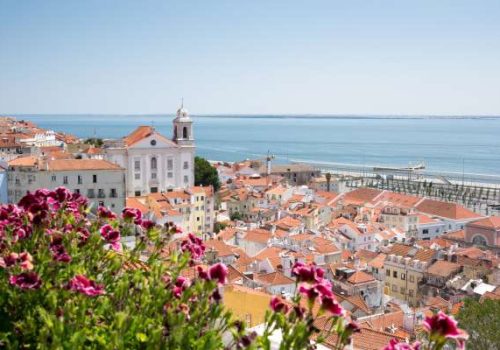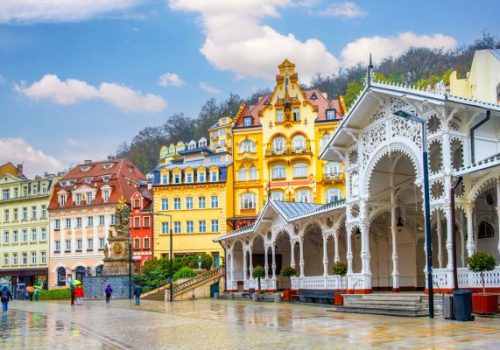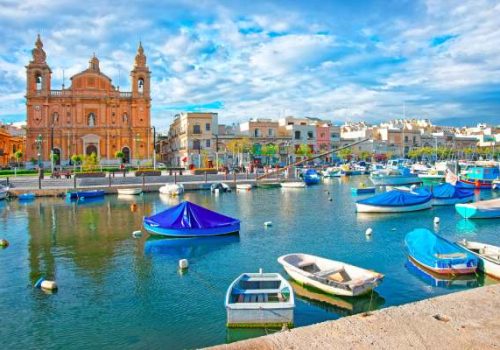Living and working in Hamburg
Our latest jobs abroad
- Customer support
- Latvia
- Customer support
- Portugal
- Customer support
- Czechia
- Customer support
- Portugal
Hamburg is a city and metropolis in Germany and the second-largest city in the country. You might not expect it easily but Hamburg is incredibly hip and vibrant. Located on the Elbe River, this city is one of the most important port cities. After Berlin, Hamburg has the second most inhabitants. If you start living and working in Hamburg, you will actually end up in a city that has a lot to offer in terms of museums and a lot of cultural hotspots.
Benefits of living and working in Hamburg
The biggest advantage of living and working in Hamburg, is that Hamburg has a lot to offer in terms of housing and employment. Hamburg has a nickname: ‘Hamburg-meine Perle’. In other words, the gem of Germany. You will find many shopping malls, restaurants, parks and entertainment venues. The city is also known as ‘Venice in miniature’. There are a lot of canals, which reminds you of Venice in Italy. This is precisely what makes the city so charming. It is also a real port city with many places where you can eat delicious fresh fish. The city is very multicultural and therefore has a very international character. Above all, it is also a very green city with parks all over the city. And of course, another big advantage is that Hamburg is one of Germany’s cheaper cities in terms of living costs. In short, living and working in Hamburg is very pleasant when it comes to combining fun and also work.
Living in Hamburg
Accommodation in Hamburg
Finding accommodation is not very easy, but by no means impossible. Prices do vary enormously by district. The average rent for a room outside the city centre is around €400. A room in the city centre is naturally slightly more expensive.
One website you can go to for finding accommodation is: Wohngemeinschaft.de
There are also Facebook groups you can turn to.
Nice neighbourhoods in Hamburg are:
- Schanzenviertel: A hip nightlife district
- Altona: A diverse district with lots of nice shops
- St Pauli: The nightlife district of Hamburg.
- Karolinenviertel: A lively multicultural district
- Rotherbaum: Located near St. Pauli. Many students are located here.
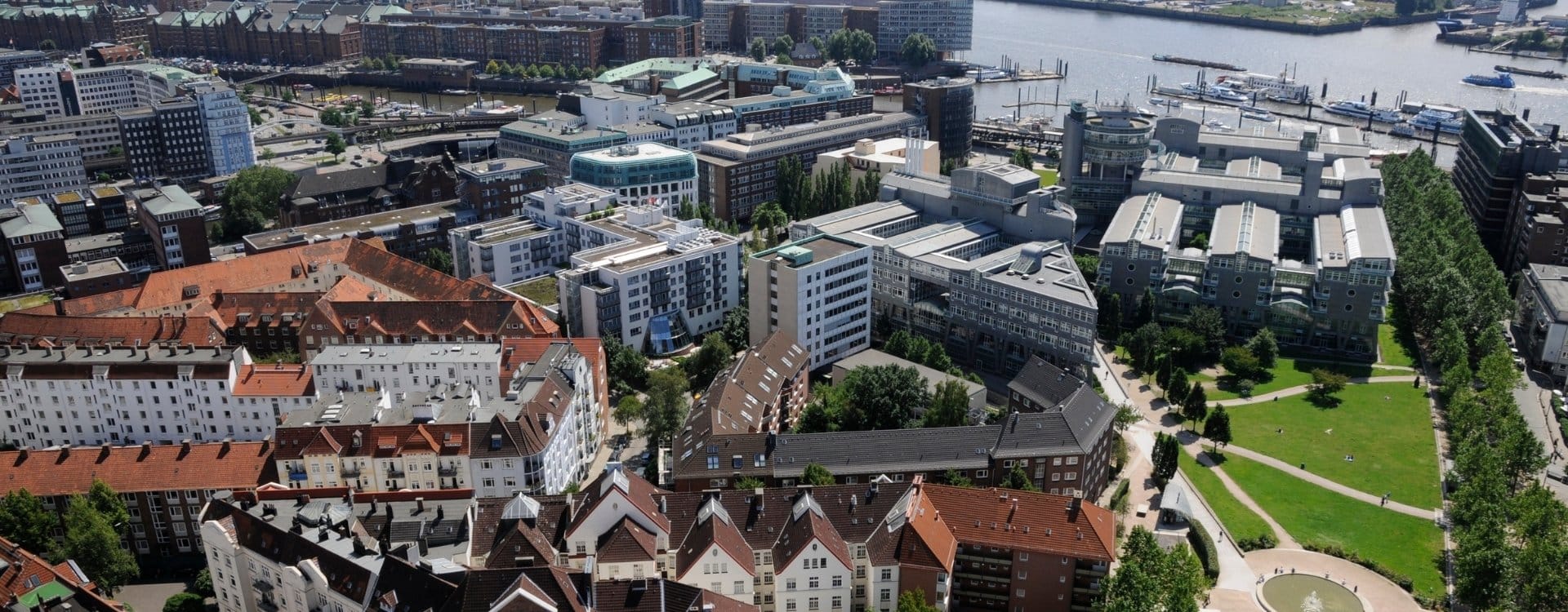
Transport in Hamburg
As in many other cities in Germany, public transport is also well organised here. The city is equipped with S-bahnen, U-bahnen (subways and trams) as well as ferries and buses. Rail transport is again referred to as A-bahn. There is also even a water taxi in Hamburg.
Apart from the water taxi, you can use all public transport with one ticket. So this is by U-Bahn, S-Bahn and city buses. Sights and shops are in zones A and B.
Eating in Hamburg
Hamburg also has a whole variety of different restaurants and cuisines. We would like to give away some tips on where to eat best.
Altes Mädchen
If you are a beer lover then this is the place to be. In fact, there is a choice of 60 different beers. It is therefore possible to take part in a mini tasting. Afterwards, it is possible to enjoy a varied menu.From pulled pork, roast beef, cod and fresh bread from the wood oven with curry sausage.
Otto’s Burger & The Burger Lab
The name says it all.For the tastiest burgers, this is the place to go. This burger bar is in many different places in the city.
Atelier F
This French/American restaurant serves steaks, burgers, fries and mussels. The bistro serves finger food. The bistro has a cool look and the restaurant is a bit more upmarket and has a champagne bar.
Nightlife in Hamburg
Nightlife mainly takes place in the St Pauli district in the Harbour District. You will find many cafés, nightclubs and theatres. The Reeperbahn is a good place to go out, but is also known as a red light district. Ottensen and Altona have many hip and trendy bars and clubs.
The St. Georg district has many bars and discotheques. The big advantage of going out in Hamburg is that the bars and restaurants decide themselves at what time they close. Consequently, many discotheques do not close until early in the morning.
A few nightlife tips are:
Cult
If you like 70s and 80s music, this is the place to be. The venue even looks like a cathedral.
Docks
At this cosy club, drinks are cheap and bands often come to play.
Molotow club
A club with a very diverse music style towards alternative, such as White Stripes, the Hives, Kills and Bravery.
Golden Cut
A popular exclusive club with a very strict door policy, unless you eat at the club first. It plays soul, funk and house.
Thalia Theatre
A beautifully intimate theatre with well-known classics played there.
Hamburg’s landscape and nature
Hamburg is an incredibly green city and possesses many parks. A popular park which is often visited is the Alsterpark. There is a promenade 1.5 km long. From there, you can enjoy nature. It is possible to rent boats and sail on the Alster. There are also nice cafés around the Alster.
In the middle of the city is a beautiful green recreational area: Planten und Blomen. This is a botanical garden with many exotic flowers and plants, including a huge Japanese garden.
On the lawns of the Stadtpark you can enjoy the sun and use an outdoor swimming pool.
What not to miss in Hamburg
Bridges
Hamburg is located on the River Elbe. The city has as many as 2,300 bridges. The bridges range from small ones to large ones. The Köhlbrandbrücke, Kattwykbrücke, Norderelbbrücke and Feenteichbrücke are the better-known bridges. The very first tunnel that ran under a river was built in Hamburg. This is the Alte Elb Tunnel. It was built in 1911. As you enjoy a scenic cruise on the Elbe, you will see the city’s beautiful architecture and its lovely bridges.
Sankt Pauli
In ‘der Kiez’ is Hamburg’s biggest nightlife area, located in the city’s Sankt Pauli district. The famous Reeperbahn street is also known as the red light district. There are also many theatres in this area, including the St Pauli Theatre. The side streets of the Reeperbahn are home to small pubs and clubs.
Fish market
We already mentioned that there are many places in Hamburg where you can eat delicious fresh fish. Every Sunday, a big fish market takes place in the harbour. In the summer months, this market starts getting ready at 05:00 in the morning. Several market vendors price their wares amid loud shouting and sometimes singing. Besides fish, flowers, fruit and various souvenirs are also on sale here.
Deutsche Schauspielhaus
The beautiful neo-baroque-style Schauspielhaus theatre is located on Hamburg’s Kirchenallee. It showcases both classical and contemporary works. Opposite this theatre is Hamburg’s beautiful central train station.
Hamburg Hauptbahnhof
This very large Hamburg train station certainly handles over 450,000 passengers a day, making it the busiest train station in Europe. The station is home to many shops and even a gallery on the top floor. Since 2008, classical music has regularly resounded through the Hauptbahnhof. They play this to chase away drug dealers and users. It even proves to be a success. You’ll find this station in the Hamburg-Mitte district near the Deutsche Schauspielhaus.
Rathaus
A beautiful building in Hamburg is the city hall which is located in the centre of Altstadt. The building has 647 rooms and is comparable to a large palace like Buckingham Palace. The lobby regularly hosts concerts or exhibitions.
Speicherstadt
Speicherstadt, or ‘the city of warehouses’, is an area that has a lot to offer when it comes to theatre, art and architecture. Several museums like the Afghan Museum, the German Customs Museum or the International Maritime Museum can be found here.
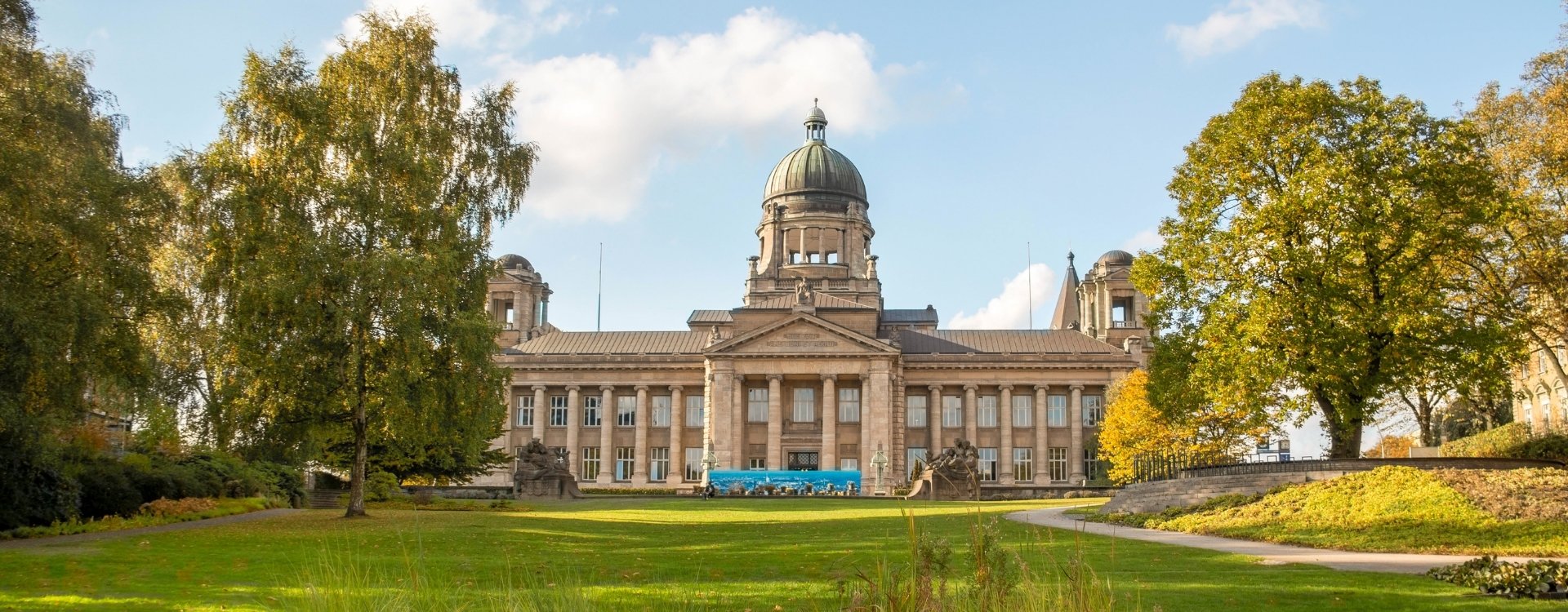
Healthcare in Hamburg
Germany has an incredibly good healthcare system. In Germany, you have a choice of many different doctors and hospitals. Long waiting lists are very rare. Most of the costs of using medical care and medication are also covered by health insurance schemes. In short, when it comes to the health system, you really are in the right place in Germany.
Purchasing health insurance in Germany is compulsory. In fact, you cannot come to work in Germany without having purchased insurance. Public health insurance is mandatory for all employees with an income below €49,500 per year. Private health insurance is only possible if you earn more than that! Once you have taken out private health insurance, it is no longer possible to switch to public health insurance.
Visa and travel insurance
A visa is not required in Germany. All that is required as an EU resident is a valid ID card or passport. A registration with the municipality where you want to live is sufficient. When registering with the municipality, it is useful to at least also bring proof of income. Otherwise, there are no legal barriers for people from within the EU.
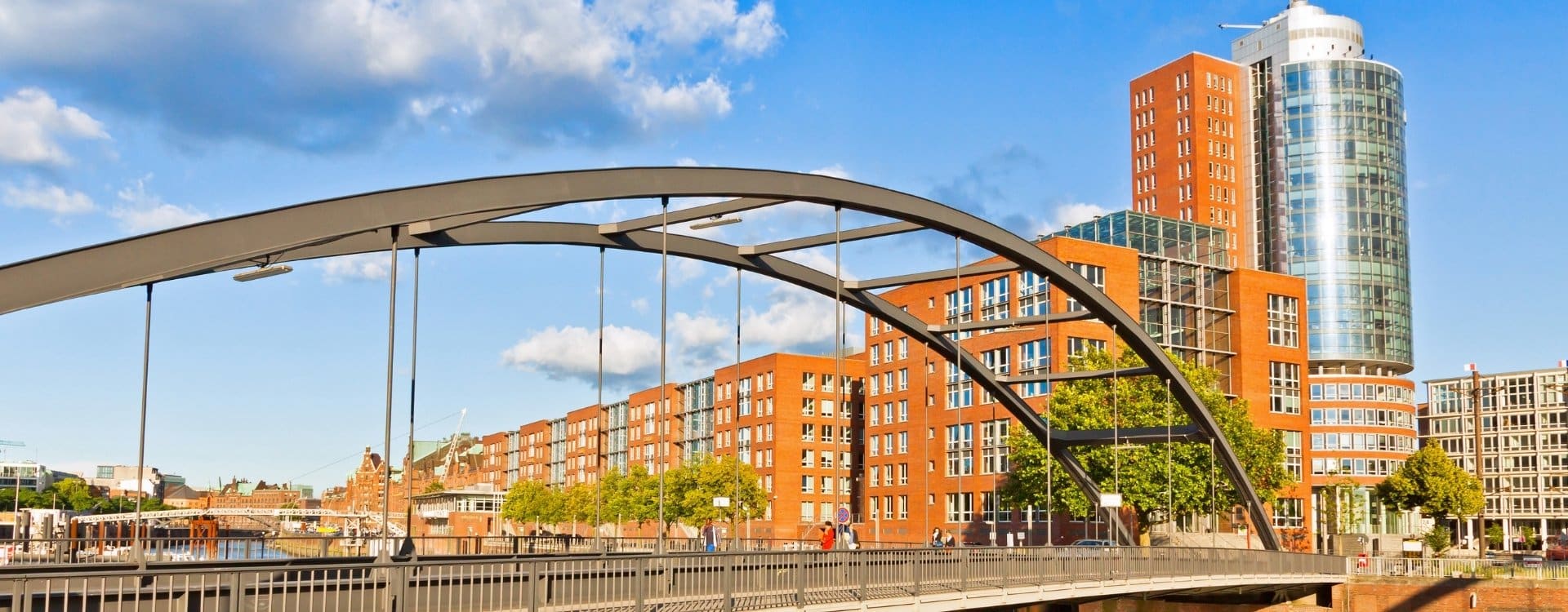
Working in Hamburg
Working conditions
The German economy is considered the fourth strongest economy in the world. As a result, there are an awful lot of opportunities to work in Germany, and be of service to the German economy.
A German working day typically lasts from 9 to 5. Under German law, an average working day therefore lasts 8 hours. A 48-hour working week is therefore the maximum number of hours you can work in a week.
Germany features an awful lot of national holidays: as many as 19, which is much higher than is common in other countries.
Salary in Hamburg
Lohn/Gehalt is around the highest in the world. The income of a customer service employee is around €1800 – 2200 gross per month. It is always spoken in gross wages so before taxes and social insurance. In contrast, taxes can be high, up to around 50% of the gross salary.
The salary level is stated in the contract, where bonuses and salary reviews are normally also discussed. In most cases, a 13th month is also paid out, around December or split between Christmas and summer holidays. In some management positions, even a 14th month is paid out.

